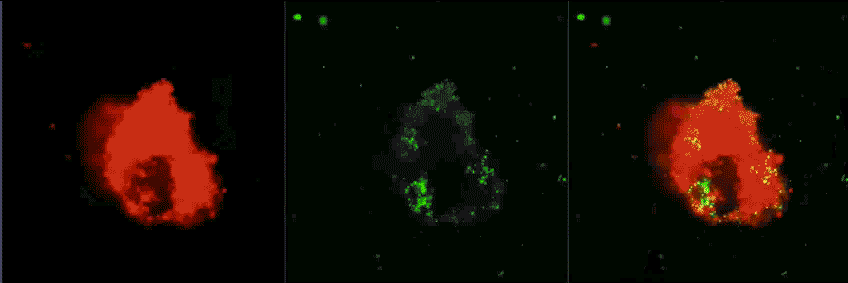
7th March 2015 Stem cell therapy for lung cancer to begin human trials A pioneering therapy using bone marrow stem cells to treat lung cancer patients has been announced in the UK.
A new combined cell-gene therapy for lung cancer will be tested on National Health Service (NHS) patients this year, after receiving £2m (US$3m) of funding from the Medical Research Council (MRC). Scientists at University College London (UCL) will conduct the world's first human clinical trials of a combined stem cell and gene therapy for the disease, which is notorious for its high incidence and low survival rates. In the UK, lung cancer is the second most common form of cancer, responsible for 34,000 deaths each year – while in the USA, it is the third most common form of cancer, killing 158,000. Globally, lung cancer is the single most common cause of cancer-related death in men and women, responsible for 1.6 million deaths in 2012. Five year survival rates are among the poorest of the 200 cancer types: only 9.5% in the UK and 17.5% in the USA. There has been slow progress in terms of improving these mortality figures, with only small incremental increases since the 1970s. UCL's new experimental treatment could change that. Early tests have shown it can significantly reduce and in some cases eliminate tumours in mice. Researchers will now test the treatment in human volunteers – firstly to check that the treatment is safe, then in 56 lung cancer patients to see how effective the gene/cell therapy plus chemotherapy is compared with standard care. Sam Janes, Professor of Respiratory Medicine at UCL and the study's leader: “Lung cancer is very difficult to treat, because the vast majority of patients are not diagnosed until the cancer has spread to other parts of the body. One therapy option for these patients is chemotherapy, but even if successful this treatment can normally only extend lives by a handful of months. Chemotherapy can also cause widespread toxic side-effects. We aim to improve prospects for lung cancer patients by using a highly targeted therapy using stem cells, which have an innate tendency to home in on tumours when they’re injected into the body. Once there, they switch on a ‘kill’ pathway in the cancer cells, leaving healthy surrounding cells untouched. If clinical trials are successful, our treatment could be transformative for the treatment of lung cancer, and possibly other types of tumour in future.”
The new treatment works by genetically modifying bone marrow stem cells to express an anti-cancer gene called TRAIL. Being encased within a cell protects the genetic material from being degraded by the body, so that when it reaches the tumour it is able to trigger a signalling pathway that kills the cancer cells. Each patient will receive almost a billion cells over three infusions, three weeks apart (injected one day after receiving chemotherapy). Over the next three years, 100 billion cells will be created at the Royal Free Hospital’s £2.1 million, state-of-the-art cell manufacturing lab. A key advantage of the treatment is that the cells can be used ‘off the shelf’ and do not need to be from a close relative or tissue match. This is because they have relatively few proteins on the surface and do not induce an immune response in the recipient. “This will be the first cell therapy for lung cancer and the biggest manufacturing of cells of its kind,” said Professor Janes.
Comments »
|








